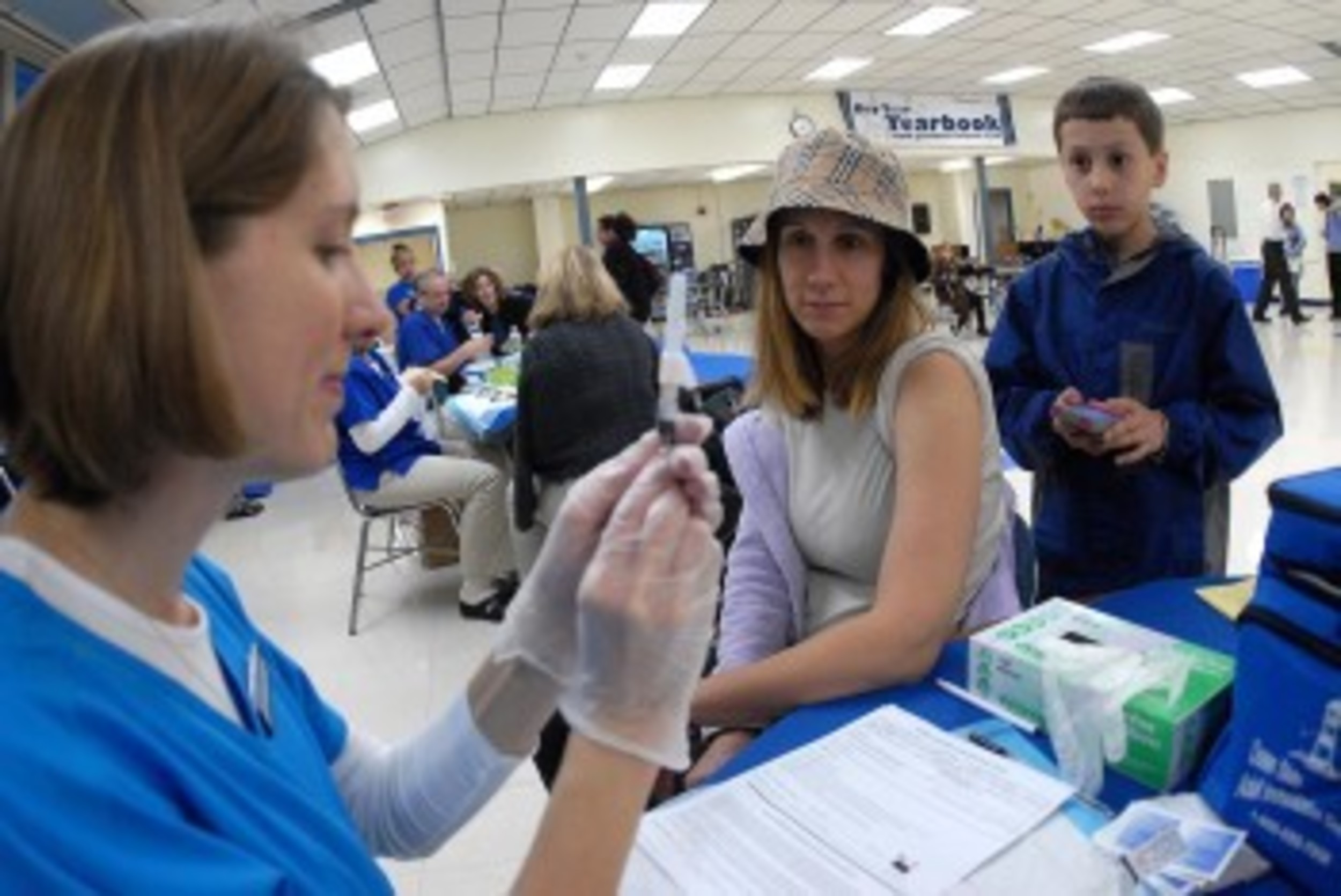In Barrington, whooping cough goes quiet
Barrington may have played host to a whooping cough outbreak last year, but the community is faring much better this winter.
According to East Bay Pediatric’s Dr. Marco Ferretti, the cases of whooping cough (also known as pertussis) are …
This item is available in full to subscribers.
Please log in to continue |
Register to post eventsIf you'd like to post an event to our calendar, you can create a free account by clicking here. Note that free accounts do not have access to our subscriber-only content. |
Day pass subscribers
Are you a day pass subscriber who needs to log in? Click here to continue.
In Barrington, whooping cough goes quiet
Barrington may have played host to a whooping cough outbreak last year, but the community is faring much better this winter.
According to East Bay Pediatric’s Dr. Marco Ferretti, the cases of whooping cough (also known as pertussis) are down this year. He said he’s seen only a couple of cases this winter, “but that’s pretty typical.”
“I used to see more pertussis before we had the vaccine,” said Dr. Ferretti, adding that the vaccine has been available for almost 10 years. “Now that we have a vaccine we’re seeing a lot less cases.”
Last year, however, Barrington took a hard punch from pertussis. Starting prior to Thanksgiving 2011, doctors began diagnosing whooping cough in local school children. By early Jan. 2012, the state Department of Health had confirmed eight cases of pertussis in local schools — it was confirmed at Barrington Middle School and Hampden Meadows.
The state then issued a press release: “Due to the outbreak and based on a recommendation from the Centers for Disease Control and Prevention (CDC), the health department encourages anyone age 10 or older who has not previously received a Tdap vaccine and lives in Barrington get vaccinated.”
The department of health also organized a two-day vaccination clinic in mid-Jan. 2012 for Barrington residents. More than 1,000 people turned out.
According to Dr. Ferretti, many of the cases from last year’s outbreak included 10-year-old children who were due to receive a pertussis vaccination booster a year or two later.
“There is a feeling that the vaccination we’re giving the kids at 4 or 5 ... is not lasting until they’re 11 or 12,” Dr. Ferretti said, adding that children receive the booster at that age.
“That vaccine is wearing off a little early. It’s the 10-year-olds who are coming down with pertussis. The CDC is weighing whether to give a ... booster at age 10.”
Dr. Ferretti said last year’s outbreak was the town’s second in the last five years. “It’s happening in the same age group,” he said.
It’s likely that the widespread vaccinations offered in town last year during the outbreak have played a role in reducing the number of pertussis cases in Barrington this year. However, Dr. Ferretti warned that pertussis could return again next year in a similar fashion to the 2011-12 outbreak.
Not getting vaccinated
Dr. Ferretti said he’s seen a drop in the number of people getting their children vaccinated for various diseases, including whooping cough.
He said that shift is likely to blame for the increase in whooping cough cases nationwide.
“Out west it’s more prevalent,” he said. “The historic fatality rate for measles, chicken pox and pertussis is 1 in 1,000. Out west we’re seeing about the same rate for kids with pertussis now.”
The local pediatrician said Rhode Island does a nice job immunizing the public, and credits the department of health. He said that department established a good line of communication with pediatricians and other doctors during the swine flu epidemic a few years ago, in an effort to best immunize residents.
More about whooping cough
Pertussis begins with cold symptoms such as a runny nose and a cough that worsens over one or two weeks. Symptoms include a long series of coughs that may turn into “coughing fits” followed by a whooping noise when a breath is taken.
Not everyone develops the whoop but may still have pertussis. There may or may not be a fever associated with the illness.
A patient may have coughing fits followed by vomiting and may have difficulty catching their breath. They may begin to turn blue. The cough is worse at nighttime and cough medicines do not alleviate the cough.
Pertussis can be treated with antibiotics and those exposed can be treated with antibiotics to prevent infection. The best protection against contracting pertussis is a vaccination which is required for all students entering seventh grade. The vaccine is usually given to babies at two, four and six months of age and again at about 16 months of age and between four and six years of age. Older people should have a booster shot to protect themselves and others from pertussis.






